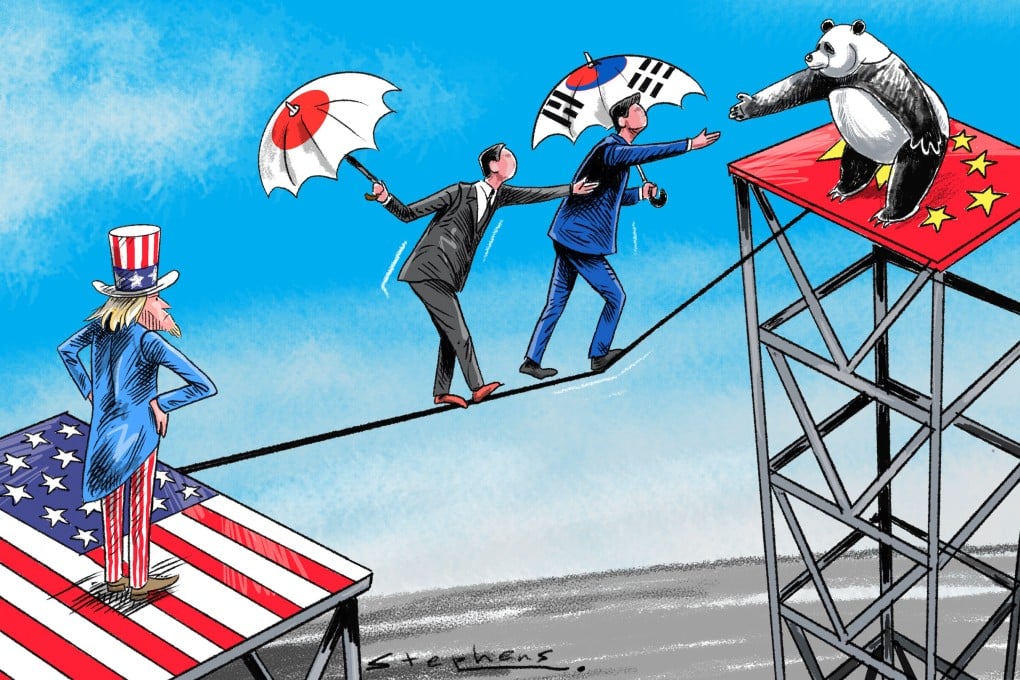Advertisement
Opinion | China, South Korea and Japan are talking again – the US should take note
- China, Japan and South Korea will convene a long-delayed summit despite differences on global conflicts and the unlikelihood of fruitful trade talks
- All three countries share a desire to stabilise the region, especially given potential uncertainties stemming from the coming US presidential election
Reading Time:4 minutes
Why you can trust SCMP
6

On May 26, the leaders of China, Japan and South Korea will gather in Seoul for a trilateral summit, the first since 2019. Chinese Premier Li Qiang, Japanese Prime Minister Fumio Kishida and South Korean President Yoon Suk-yeol will come to the long-delayed meeting with differing agendas but a common desire to stabilise relations in the face of a turbulent security landscape.
Advertisement
First held in 2008, the meeting was originally intended to be an annual affair with a heavy economic focus. The format is inherently asymmetrical: China sends its number two official – not its president – while South Korea and Japan dispatch their top political leaders. After the 2019 meeting in Chengdu, the Covid-19 pandemic scuttled subsequent meetings and Beijing resisted resumption, perhaps due to suspicion of the pro-US Yoon administration and friction within Japan.
But facing a lagging economy, the formation of several US-led security arrangements in its orbit and a range of trade restrictions, Beijing has shifted its stance. China is keen to reinforce its neighbours’ investments in its economy, arrest US success in formalising partnerships that Beijing sees as containment and stabilise its geopolitical position.
China is eager to provide a geopolitical counterweight to the rejuvenated US embrace of allies in the region. Japan and South Korea have both drawn closer to the United States by deepening their alliances and adopting a trilateral relationship with regular military exercises and exchanges. Under Yoon and Kishida, and with US urging, Tokyo and Seoul have sidelined historical issues that have dogged relations in past years.
The rapprochement formalised at Camp David in 2023 appeared to alarm China, prompting it to signal an openness to resuming the trilateral dialogue, in the hopes of possibly eroding the emerging strategic convergence. Although it seems unlikely Japan or South Korea will backtrack on their commitments to the US, China may advocate that both countries seek a degree of strategic autonomy rather than hew closely to US security priorities.
Advertisement
While South Korea and Japan have aligned more closely with the US and even expanded their support for US positions globally, they both inhabit a duality in their foreign policy approaches to China.

Advertisement

